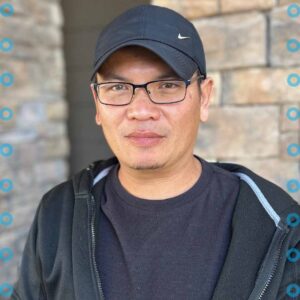October 19, 2022
– By Khiaw Srihanouvong –
Mental health struggles do not discriminate. They can affect anyone, regardless of age, gender, race, or religious background. The Asian community tends to keep mental health issues very private. It’s considered a taboo subject. I live in Alabama’s Gulf Coast region, and I’ve noticed it is less common for Asian individuals to go to hospitals or clinics to receive help or assistance regarding mental health.
The National Latino and Asian American Study (NLAAS) found that 17% of Asian Americans have a psychiatric disorder at some time in their life. They also found that 9% of Asian Americans were struggling with a psychiatric disorder at a 12-month rate. Yet Asian Americans are less likely to seek help. Only 8.6% of Asian Americans sought any type of mental health services or resources compared to nearly 18% of the general population nationwide. There is a discrepancy between Asian Americans who are struggling with their mental health and those who seek out help.
Mental health is a complicated issue, but there are three reasons I find contribute to this discrepancy.
- Cultural beliefs
- Pressure from stereotypes
- Language barriers
Cultural beliefs
If the family knows that one of their own is showing signs of mental health issues, they often want to keep the information low-key. Some families believe mental health issues are consequences of the things you have done wrong in your past life, so instead of seeking help, they tend to not talk about it. America already has a negative stigma surrounding mental health, but cultural beliefs in Asian communities only amplify it.
Pressure from stereotypes
Asian Americans are often considered a “model minority,” which stereotypes Asian Americans as being successful. The parents and grandparents of the Asian community living in the Gulf Coast region came here to better their lives. They might not have much education, but they work very hard for very little wages. They don’t want their children and grandkids to experience what they are going through so they push them to succeed in school. The pressure put on the youth to excel in school and fit into society has broken some. There are tragic cases of suicide among the younger generation.
Language Barriers
Language barriers negatively impact Asians living in America in many ways, including when seeking mental health assistance. Where I live, there are not many interpreters for the Lao community at the medical facilities. Mental health issues can already be difficult to talk about, but when you can’t express yourself in your native language, it adds another level.
There are a lot of factors that can contribute to mental health issues in Asian American communities; I’ve noticed four factors in Alabama’s Gulf Coast Lao community.
- Stress
- Isolation
- Cultural pressures
- COVID-19
Stress
The people in my community work hard, but limited education often means low-income wages. The stress of having to provide for your family with low-income wages because of your education. There are some resources to help families, but there is also a lack of awareness of the recourses that are available to them.
Isolation
Most elderly community members don’t drive because they can’t read signs and laws, so transportation becomes a huge barrier. They must depend on someone in the community for help. Isolation can greatly deteriorate the mind. When you have an elderly person that lives alone and has a limited vocabulary, that person’s mental health issues are at risk.
Our cultural belief is that because our parents cared for us when we were just babies, they changed our diapers, fed us and loved us, their children should watch over them when they’re in need as elderly adults. In today’s Asian community things are different. The different cultures around us influence our younger generation and sometimes they leave their parents to fend for themselves. This leads to more isolation for the elderly than in the past.
Cultural Pressures
The Asian culture can put pressure on its people, especially the younger generations. They feel the pressure to succeed in school and experience family obligations based on strong traditional and cultural values.
COVID-19
When the pandemic forced everyone to stay isolated it worsened the potential to have mental health issues. Hearing news that someone in our community had passed away from COVID made it even harder. We are social beings, and to be isolated can have a devasting outcome.
Having a small community of Lao people here in the Gulf Coast region helps. We are here to help one another; we share our concerns and talk about them. With a small and supportive community, you have many people to reach out to.
The temples or our local churches are where we can all get together and heal. Sometimes oral medication is not always the answer; spiritual healing can be a powerful source to heal the mind.
We still have a lot of work to bring mental health awareness to the Asian community. It is a very sensitive topic to ask a family if they believe one of their family members is suffering from this disease and if one is, where and who they can turn to. With more and more resources and awareness about mental health within the Asian community, I hope to see the negative stigma go away and more people seek help.


